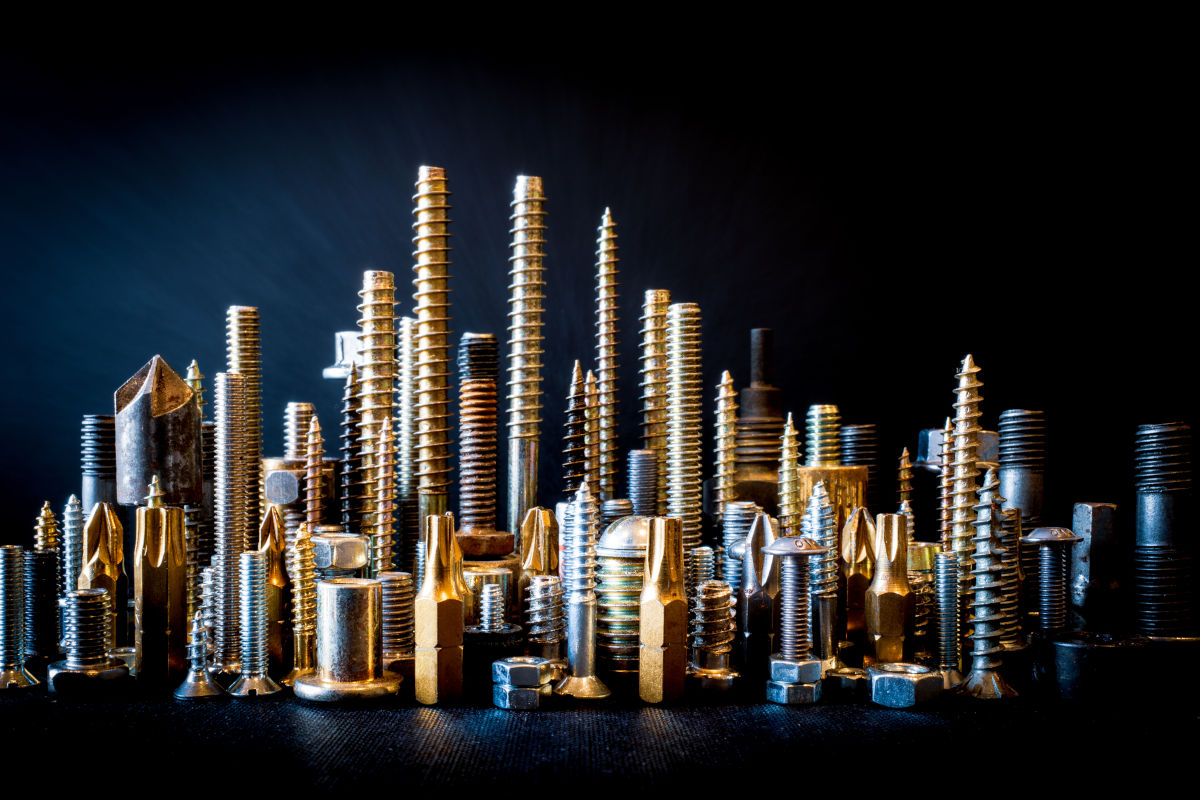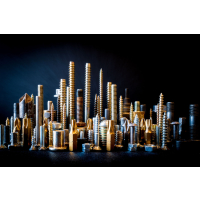- Home
- Blog
- Screws & Fixings
- Screws and Bolts: Everything You Need to Know
Screws and Bolts: Everything You Need to Know

Screws, nuts, and bolts have been used interchangeably for what seems like forever. Think about it, do you know the difference between a screw and a bolt? Has anyone ever explained the difference?
The world of screws and bolts is relatively complex in terms of their sheer quantity, but after reading this guide, you’ll know exactly which screws and bolts are right for your project.
Hex bolts, washers, and screws can all seem to blur into one until you eventually just put them under the same umbrella. But, distinguishing between screws and bolts is way more important than you think; in fact, it could be the defining difference in your next DIY project.
Don't panic; we won't quiz your knowledge right now, but we’ll give you an insight into the world of screws and bolts so you can understand the many benefits and confidently put items in your shopping cart based on quality, not just blind guess.
What's the difference between a bolt and a screw?
So, let's start with the basics: Screws and Bolts are not the same! But what's the difference? Well, screws are typically installed in what is called a tapped hole. A tapped hole is just a hole drilled before screw insertion (unless you're using a self-tapping screw that creates internal threads for you).
Whereas, typically, a bolt is fastened using a spanner to make sure everything is closed tightly.
In a nutshell: screws need a hole; bolts are fastened with a spanner unless they are attached to a threaded component. Simple as that.
If you need a visual to help you understand what a hex bolt and nut look like, check out our huge range of Nuts & Bolts and see if we can assist you with your next project!
Is it a bolt or a screw?
We touched on this briefly before, but screws and bolts don't just serve a different purpose; they also look a lot different!
Picture a screw; what do you see? We're willing to bet you imagine a pointy-ended, fully threaded screw, and you would be correct, but it isn't the only kind of screw out there. The truth is, there are so many different types of screws that it's hard to pin down an accurate description of one; for example, The same goes for bolts. But there are some telltale signs of both.
Screws tend to have a pointed end and make their own thread in the material. They also have a what is called a drive in the head which is used to insert the screw. Common drives are Phillips, Flathead, Square and Hex. Screws can vary in range in terms of length and the number of threads, so it's essential to keep this in mind the next time you're searching for a suitable screw. After all, you won't want a huge screw sticking out of the wall when you were only hanging a picture!
Bolts can be slightly different; they usually have flat bottoms (or tips) and might need tightening with a nut. Bolts can have different shaped heads too. They end of a bolt is usually hexagonally shaped, which are known as 'hex bolts.'
If you'd like to grasp the full scale of the world of screws and bolts, why not check out our stock of quality nuts and fixings to see if you can spot the differences yourself!
What are the different screws and bolts called?
With such a broad range of screws, bolts, and fixings come quite an expansive list of names, so we're going to take you through some of the lists of screws and bolts we have here at Trade Warehouse.
- Anchor Bolts - Anchor bolts are used to connect concrete to structural and non-structural elements.
- Carriage Bolt - Carriage bolts have a domed head and a flat bottom at the end of the shank. They're suitable for securing metal and wood.
- Countersunk Wood Screws - Wood screws are super sharp screws screwing into wood with a predrilled hole.
- Hex Nuts - Hex nuts and bolts are hexagonal-shaped bolts used as fasteners and sometimes for screwing.
- Pentaforce Security Screws - This five-sided pan head is super sturdy and can come with a pointed or flat end.
- Plasterboard Fixings - These screws are designed to be lightweight so that you can insert them into gyprock without any damage to the wall or surface.
- Shear Nuts - Shear Nuts are heavy-duty fasteners that are permanently fastened and pretty hard to uninstall due to their cone-like shape.
There are, of course, far more screws, nuts, and bolts that customers can get their hands on, so make sure you check out our products services on our web page to find out more about the types we offer!
Can I use screws for bolts?
When deciding whether to reach for a screw or a bolt, it's important to know their individual uses and benefits. In other words, it's essential to know when and where they can be used interchangeably.
Screws are relatively versatile and provide a secure grip in most scenarios. Screws can be used with most materials, too, hence why they're used in nearly every DIY project. It also helps that they can be screwed in and removed easily with the most basic tools in your home.
If you're taking on a major DIY job that requires some serious security, however, you might want to ditch the screw for a bolt of screw set. Bolts come with an added level of strength as the washer helps to keep materials tight and secure. For an excellent screw set, take a look at our website for a great range of products.
Ultimately, your choice between screw or bolt will depend on the fastening strength you need and the material you are working with. If you're working with wood, drywall, planks or any other lightweight material, consider using a screw. If, however, you're using heavy-duty material like concrete, a bolt would be best.
Can a bolt be a screw?
Remember when we broke down the difference between a screw and a bolt in a super-easy way? Well, we're going to throw a spanner in the works.
There are occasions where bolts can be used as screws! Full thread bolts are bolts that have a threaded component attached for extra strength. Full thread bolts, or screw sets, are resistant to a lot of force and therefore provide a lot more security than the fully threaded screws we all know and love.
So, now you're an expert on all things screws and bolts! Now that you're ready for your next DIY adventure check out Trade Warehouse for the best screws, nuts, bolts and tools Australia has to offer. You'll find quality products with efficient service and super fast delivery.


